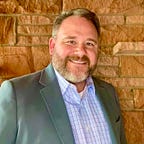Lower Your Flag
Advising organizational equity teams is a significant part of what we do at Co3 Consulting. We recently met with the equity team for one of our clients. As you may be aware, June is Pride Month. The client wanted to express solidarity with marginalized communities by taking a stand with Pride. In doing so, they discovered an elevated level of discord on their social networks as they engaged in celebratory posts around Pride Month … and why wouldn’t they?
There is an overwhelming social appetite for collective agreement, whether compelled or otherwise. We frequently find this sentiment displayed in the organizational equity practice. The equity conversation is about developing respectful dialogue so we can each engage in social change through personal transformation. It is not about fostering a culture of consensus. If there’s some inkling that organizational equity efforts are to compel a like-minded corporate culture, it’s likely causing unnecessary dissonance and harm.
After Dr. G and I listened to our client’s equity team debate spending company resources to police their social feeds from online trolls, I interjected. “Is your organizational mission to pursue a value-based social standard or to service the client you built your mission around?” There was a moment of stunned silence in the room.
I took the inquiry a step further. “Does your organization have a client base within the LGBTQIA2+ community?” They responded, “Yes!” I asked, “Does your organization have a client base affiliated with conservative, evangelical, or Blue Lives Matter communities?” They responded, “Yes, we know we service clients within those communities.” It hit them. There was a long pause for self-reflection — a vital tool for creating systemic change.
I continued, “Your client’s diversity of thought, ideals, values, and beliefs underscore the need for a systemic approach between the equity conversation and your organizational mission. If your clients are from all walks of life, your organization’s entry point into serving them is meeting them where they’re at, not signaling solidarity from afar. Engaging with communities that align with the diverse values of your team members is done by showing up at rallies, community events, or places of worship in support of your mission, not by broadcasting theirs. Be present, not performative.”
We could see several individuals in the group were struggling. We encouraged dialogue, and the CEO jumped into the conversation; “How are we supposed to show support for the marginalized if we don’t take a stand? How do we prevent harm against these communities?” I paused for momentary reflection and responded, “Strive to service your diverse clientele within all communities without bias, prejudice, or bigotry. Demonstrate that access to who you are as an organization is open to all. Provide your staff with the tools for cultivating brave space and fostering personal resilience in the face of challenge or offense. Stop sheltering manipulative victimhood or white saviorism through safe space. Rescuing others is unattainable and not your job. Teaching others to safeguard themselves is attainable and should be a part of your organizational culture.” Silent contemplation washed over their faces.
Taking a stand for change on social networks is nothing more than virtue signaling into a void. Who knows what you’re going to get back? Creating change takes more than a few keystrokes and a jazzy digital photo. Genuine change occurs when leaders engage in systemic principles that foster environments of deepened individual resilience through self-reflection, self-awareness, and self-regulation practices. In Systems Leadership, we call this cultivating feedback loops. Building resilient teams creates coherent organizations. Coherent organizations adapt more easily to changing social environments and inherently foster diverse, equitable, and inclusive workplaces. Do the work internally and allow it to emerge organically.
The discussion dove deeper into serving marginalized communities, and we found ourselves at the heart of transformative dialogue. “Do you all believe you can serve the LGBTQIA2+ community without bias or prejudice?” They enthusiastically responded, “Yes, of course we can!” I followed up, “Could you each say the same for a conservative religious community or a community that doesn’t believe in your individual values or even your existence?” Most were silent. A few members answered sincerely, “No. I can’t do that.”
What a genuine response! It was an incredibly vulnerable and honest reaction that deserves the brave space to explore because they were courageous enough to identify their own biases within the group. If we are 21st-century leaders, we are change-makers. We do not punish openness and transparency within our teams after encouraging it. We hold space for it. We engage it! How would your organization react to an act of verbalized bias or prejudice about an arbitrary group or community? Would you have the tools to move towards transformation or manage it out of the organization with virtuous objection? Bias and prejudice are present in every one of us. The goal isn’t to eliminate it but to bring awareness and provide tools for processing it toward personal growth.
Your job as a 21st-century leader is to learn how to provide the space and opportunity for team members to develop their skills of self-reflection, self-awareness, and self-regulation. Leaders cultivate opportunities to expand worldviews that include many ideas, stories, and narratives in our ever-increasing interconnected world. Live out your organizational mission equitably by rooting it in presence and awareness. The path forward is discovered through fostering dialogue. Learn to be a systemic leader, and the emergent solutions will present themselves.
Jeremy Tunnell, MA is an author, facilitator and consultant with Co3 Consulting. Jeremy writes and presents on dismantling whiteness, personal and organizational resilience and paradigm amendment. Together with his partner, Dr. Gerry Ebalaroza-Tunnell, they lead teams and organizations in professional development through programs like Healing the Colonized Mind and Whole Systems Leadership. Gerry is the principle consultant for Co3 Consulting and author of the award winning children’s book Let’s Live Aloha. Together, they host The Plowline Podcast and the Evolution of Aloha Podcast.
For More Information https://linktr.ee/co3consulting
